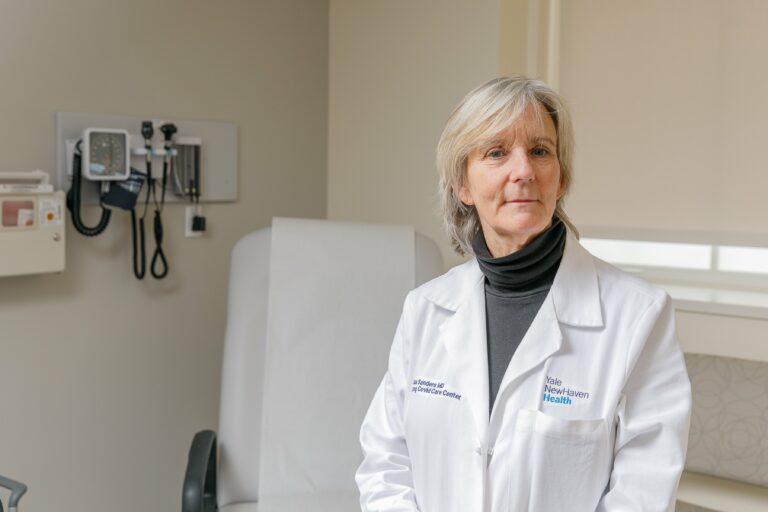
Show 1392: Grappling with the Mysteries of Long COVID
Description
Our interviews this week focus on what is known and what is still being discovered about the mysteries of long COVID. We speak with a physician heading the long COVID Care Center at Yale University and with a microbiologist heading up a multidisciplinary research initiative.
What Is Long COVID?
Our first guest, Dr. Lisa Sanders, is renowned for her expertise in diagnosis. Long COVID, with more than 200 separate symptoms, can be a huge challenge. That’s especially true because many of these symptoms are not specific to long COVID. In fact, Dr. Sanders tells a story in which a patient who did not respond to treatment actually didn’t have long COVID at all. Once they got the diagnosis correct, the condition was treatable.
Even after doctors confirm the diagnosis, patients still may not respond to each treatment. With so many possible symptoms to address, finding the right medication or nondrug therapy without overwhelming the patient poses difficulties. Managing the mysteries of long COVID can be a frustrating experience for the healthcare provider as well as the patient.
How Do Microbiologists Address the Mysteries of Long COVID?
Amy Proal, PhD, studies the molecular mechanisms pathogens use to make us sick. She and her colleagues have found that in some cases there is evidence that SARS-CoV-2 or remnants of the virus may be hiding out in tissues of people with long COVID.
Viral Reservoir:
Why haven’t we seen this before? One possibility is that most of the time research is done on one of the most accessible samples from the body–the blood. However, as Dr. Proal points out, this is not the best place for a pathogen to lurk. It is far more vulnerable to immune surveillance in the blood. In contrast, if it hides inside cells in tissues, the immune cells will have a hard time finding the virus, fungus or bacteria causing trouble. If the SARS-CoV-2 virus persists in some people’s bodies, looking for it in blood samples is a little like looking under the light post for the keys you dropped in the dark. Instead, we should be searching tissues for the viral reservoirs.
Viral Reactivation:
Besides hiding from immune cells that could mount an attack, it seems that SARS-CoV-2 may also reactivate viruses from past infections. Epstein-Barr virus, the pathogen behind mononucleosis, is one that appears to reactivate and possibly contribute to long COVID. Cytomegalovirus is another candidate. This preprint posted at medRxiv (July 7, 2024) discusses some intriguing evidence about this hypothesis.
This Week's Guests:
Lisa Sanders, MD, is the Medical Director of Yale's Long Covid Multidisciplinary Care Center. In addition to her work as a physician and teacher, she writes the popular Diagnosis column for the New York Times Magazine. In 2019 Dr. Sanders collaborated with the New York Times on an eight-hour documentary series on the process of diagnosis for Netflix. Dr. Sanders is the author of Every Patient Tells a Story: Medical Mysteries and the Art of Diagnosis and Diagnosis: Solving the Most Baffling Medical Mysteries.
[caption id="attachment_130686" align="alignnone" width="768"] Lisa Sanders, MD, credit Anthony DeCarlo/Yale Medicine[/caption]
Lisa Sanders, MD, credit Anthony DeCarlo/Yale Medicine[/caption]
Amy Proal, PhD, is a microbiologist who studies the molecular mechanisms by which bacterial, fungal and viral pathogens dysregulate human gene expression, immunity and metabolism. Dr. Proal is the founder of the PolyBio Foundation and the chief science officer and co-founder of the Long COVID Research Initiative.
https://polybio.org/team/amy-proal/
The paper Dr. Proal referenced was published in Nature Immunology, Oct. 2023.
Confidence
Thank you for sharing your thoughts about one of our products! Please focus on the product performance and quality. Please read our Privacy Policy and Terms of Use for more information about the review process.
